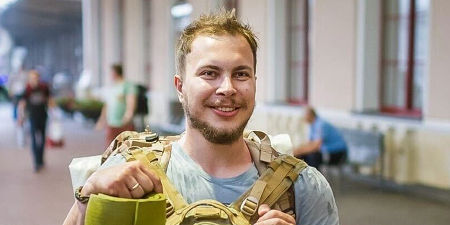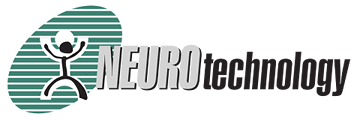I Exchanged Wheels to a Computer - Martynas Hoppenas story

Martynas Hoppenas made a significant career change by literally exchanging wheels for a computer. Arriving from the field of logistics, he is currently working as a front-end developer in the SentiSight.ai team. His story is about having the courage to change his life.
1. You have radically changed your profession from working in the field of logistics to a job as a software developer. What prompted you to make this cardinal change? Were you scared of doing that?
When working in logistics, I have always had this feeling that after so much time was spent on solving problems, after you send the invoice to a client there is no longer any product left, nothing to nurture and grow. It's like all this work, time, and effort you put in loses its meaning. After the quarantine started, this feeling only intensified since air transport was highly affected by the pandemic causing both issues in the field.
I've always liked to push myself out of my comfort zone which is exactly what this career change brought. Perhaps I just did not expect the process to take so long - the Internet is full of programming academies promising that they can make a desirable developer out of you in 6 months. Personally, this journey took me more than a year of daily studying and sacrificing my free time.
2. Is there anything you have gained or lost from changing your profession?
When considering a career change, the thought of throwing away over 10 years of experience and technical knowledge was frightening. However, soon after starting work as a developer, I realized the importance of the soft skills I have developed over the years in logistics. The ability to solve problems, not be afraid to ask questions, a quick search for information and efficient task organization make every day a bit easier. The biggest loss is losing the network of colleagues I have created over many years in logistics.
Working in the IT field has brought freedom in both my working hours and location. Since I am raising two daughters, sometimes the schedule can change unexpectedly due to illnesses or other circumstances, therefore, I appreciate the option to work both outside the office and outside regular office hours.
However, the greatest discovery is the opportunity to be learning constantly. The more I delve into IT, the wider, more complex, and more interesting this world seems. I always have the opportunity to work with new technologies, therefore, this endless learning process never stops.
3. How did you end up at Neurotechnology?
Neurotechnology name has always accompanied me. The old office was near my first apartment. When I got an invite for an interview, I was surprised that the new office is near my current living place. I have seen the company logo numerous times, yet I've always thought that the company is working in the medical field.
The job interview was unconventional and full of challenges. I was used to the first interview being with the company's HR, the second more technical, and then a homework assignment. Neurotechnology optimized this process – 8 of my future colleagues participated in the interview, which although seemed strange at first, but ended up saving both my and my colleagues' time. Instead of having 2-3 interviews, I had only one with colleagues, HR, and administration representatives.
Not to make it too easy, the second part of the interview included a live coding session. This is terrifying both for beginners and experienced developers alike, since writing code and thinking out loud in the presence of your future colleagues is not always easy. Fortunately, I don't have huge stage fright and like to push myself out of my comfort zone sometimes.
All further employment process was smooth and easy. From the first day I got full support from my colleagues. My onboarding is easier and more effective now due to help of my team lead, constant code reviews and access to other front-end developers code. The access to all these resources helps to learn best code practices much faster. Also I can discuss code structure and functionality with team or project lead before starting new task. It helps me understand and solve problems faster, and write more readable and reusable code.
4. What would you wish for people who would like to change their careers? Would you recommend following your steps?
Changes always bring stress and feeling of insecurity at first, but at the same time, progress is not possible without them, therefore, I would wish them patience and consistency. Becoming a developer is not as easy as it is advertised - it takes a lot of patience since you keep getting stuck in issues within the code. And consistency is crucial when learning since the length of this career change process depends on it.
5. Is it easy to balance work at Neurotechnology with your free and family time?
As I have mentioned, I am not tied to either work location or specific work hours. Therefore, if I decide to stay longer in the countryside on the weekend, I can work remotely on Monday from a hammock in the forest. Or I can complete Friday's work at the beginning of the week and thus start the weekend earlier.
When I was learning to code I felt huge support both from my wife and my daughters. During that year I devoted less time to them, yet since I started my job at Neurotechnology, I can perfectly balance my work with family time, therefore, I feel that I am repaying this debt little by little.
Martynas Hoppenas is one of more than 50 people at Neurotechnology involved in software engineering. We provide our new employees with all necessary support and mentoring for smooth onboarding. Our flexible work schedule is very convenient for keeping work-life balance.
It does not matter whether you are a student, a graduate, or someone who wants to kick-start a career in software development. Please check our list of open positions.
Also, if you are passionate about technologies or have some R&D experience in the following fields, we are eager to hear from you:
- biometric recognition algorithm development
- neural networks
- computer vision
- artificial intelligence
Email us (career@neurotechnology.com) your CV and motivation letter.
